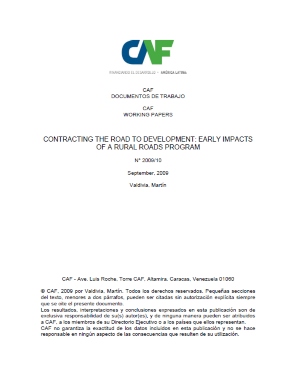| dc.contributor.author | Brassiolo, Pablo | |
| dc.contributor.author | Estrada, Ricardo | |
| dc.contributor.author | Fajardo, Gustavo | |
| dc.contributor.author | Vargas, Juan | |
| dc.coverage.spatial | América Latina y el Caribe | es_ES |
| dc.date.accessioned | 2020-05-08T20:57:36Z | |
| dc.date.available | 2020-05-08T20:57:36Z | |
| dc.date.issued | 2020-04-22 | |
| dc.identifier.citation | Brassiolo, P., Estrada, R., Fajardo, G. & Vargas, J. (2020, April 22). Self-Selection into Corruption: Evidence from the Lab. Caracas: CAF. Retrieved from https://scioteca.caf.com/handle/123456789/1567 | es_ES |
| dc.identifier.uri | https://scioteca.caf.com/handle/123456789/1567 | |
| dc.description.tableofcontents | We study whether the existence of opportunities to extract rents in a job affects the type of individuals who are attracted to it. We design a laboratory experiment in which individuals choose between two contracts, each offering a payment in return for performing a task, and we experimentally introduce the possibility of graft in one of the contracts. First, we find that the corruptible contract attracts less honest individuals and repels the more honest ones, thus changing the composition of the group that chooses that contract to the detriment of integrity. Second, we observe extensive graft when the opportunity is introduced. Using a double randomization strategy to disentangle pure incentives and selection effects, we find that selection is the fundamental driver of graft in our context. | es_ES |
| dc.language.iso | en_US | es_ES |
| dc.publisher | CAF | es_ES |
| dc.subject | Corrupción | es_ES |
| dc.title | Self-Selection into Corruption: Evidence from the Lab | es_ES |
| dc.type | workingPaper | es_ES |
| dc.publisher.city | Caracas | es_ES |





